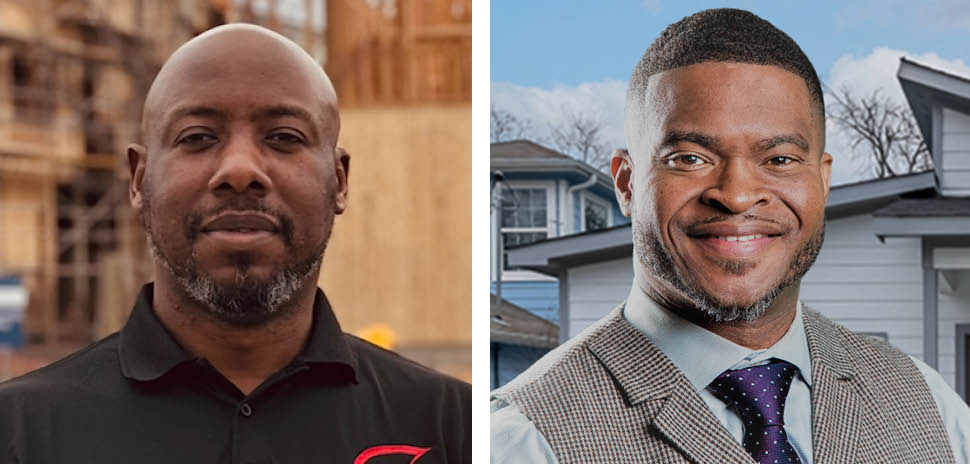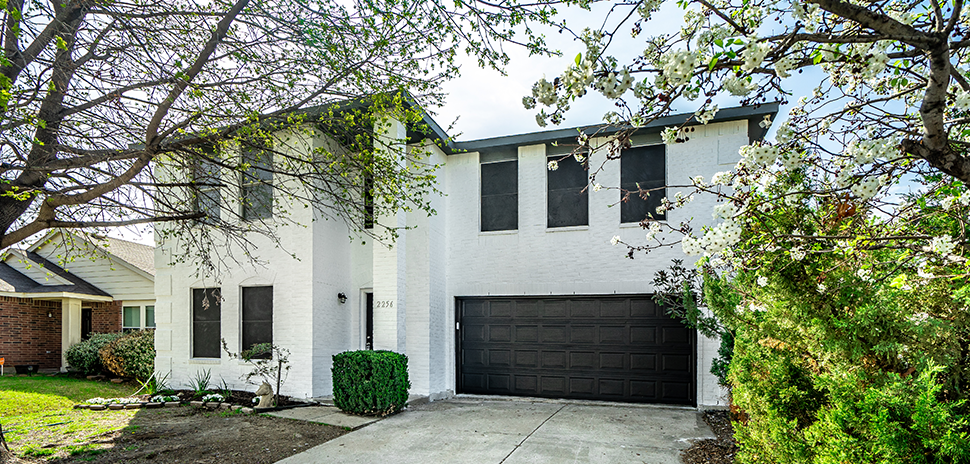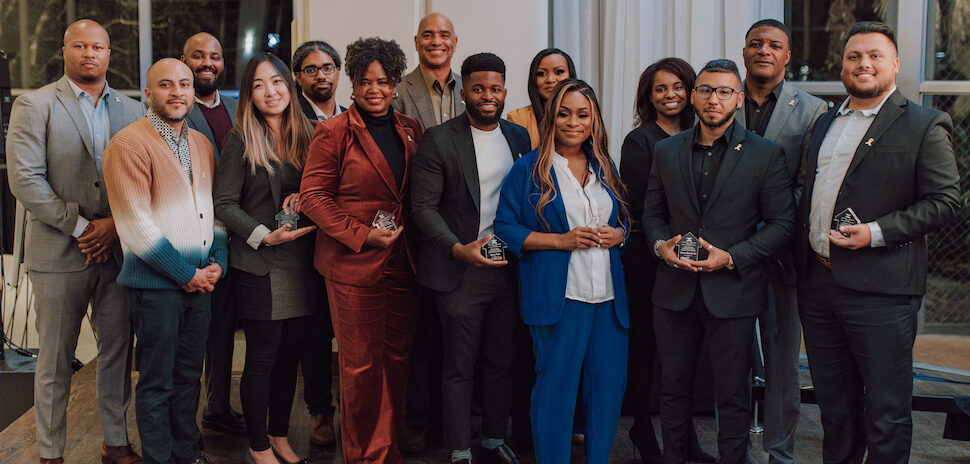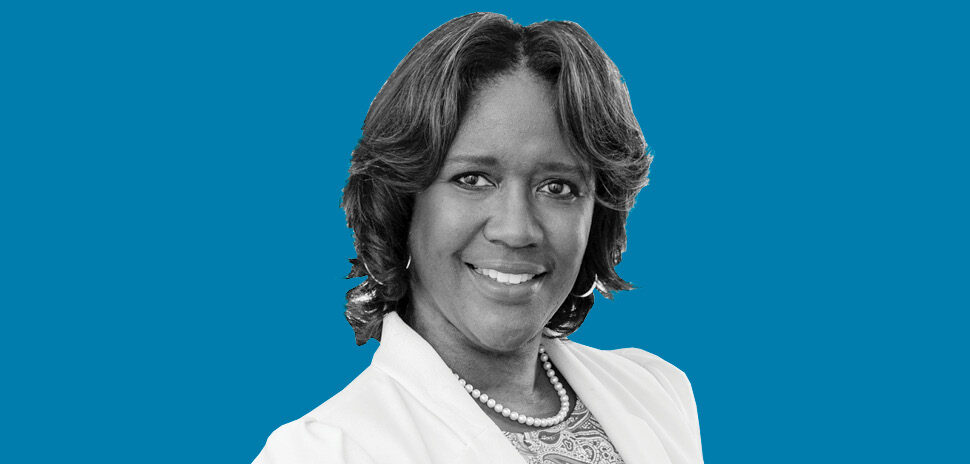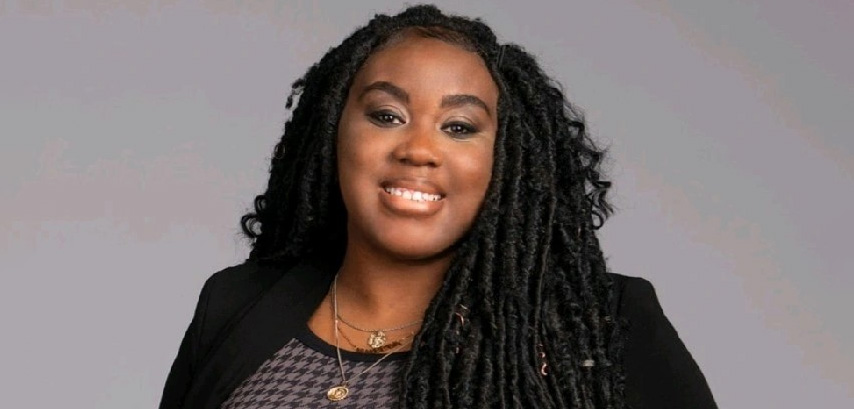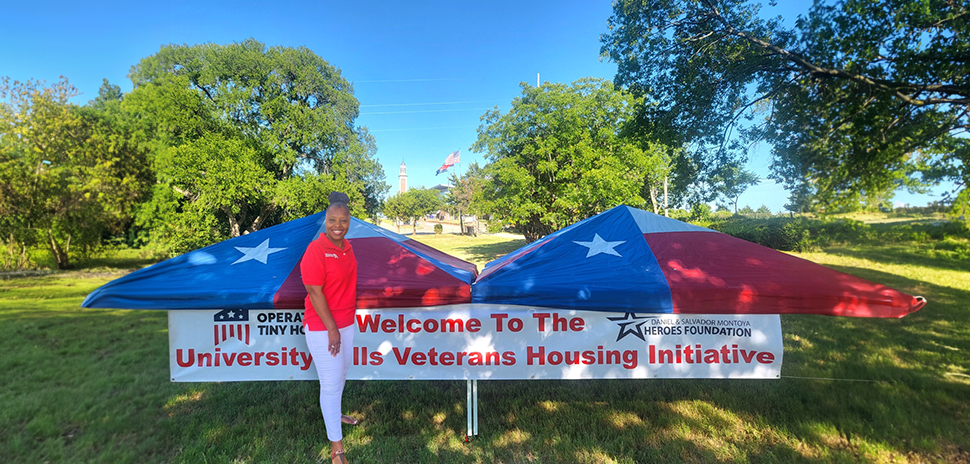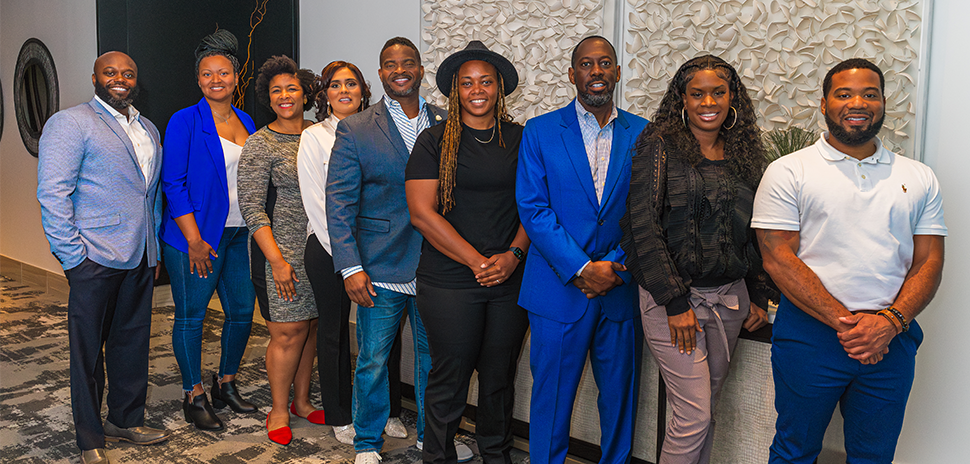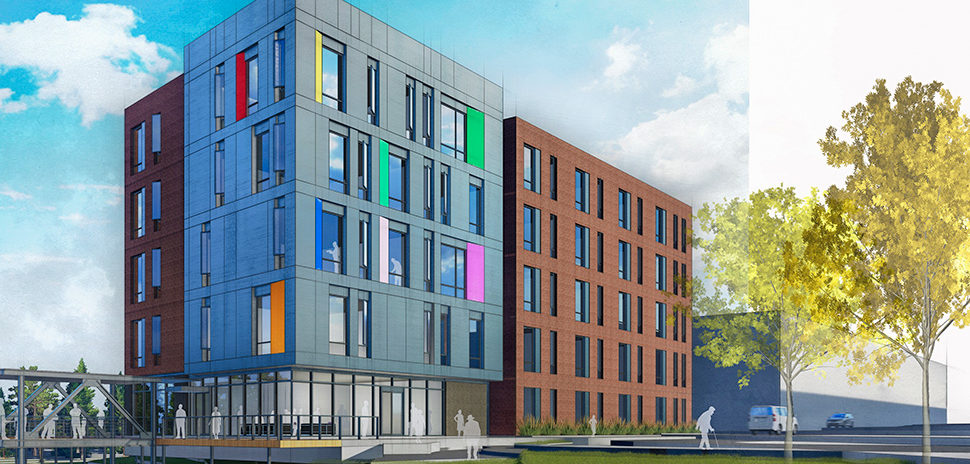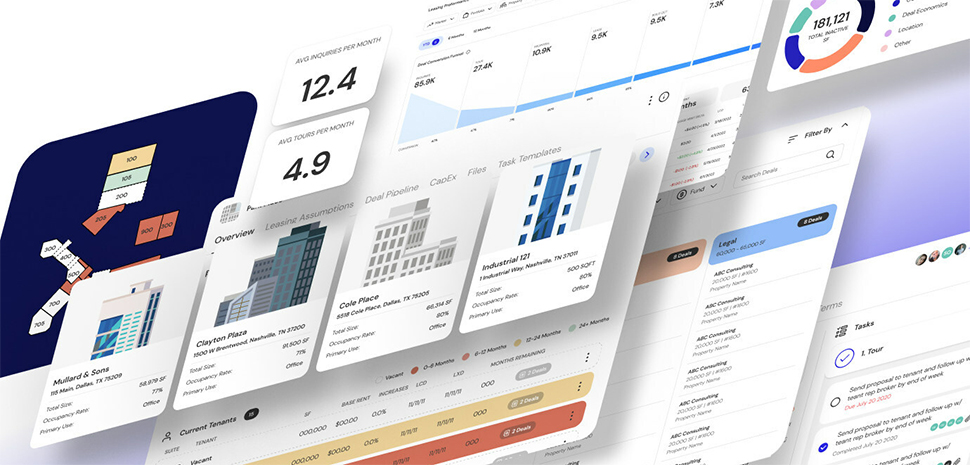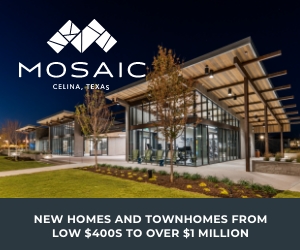Kwame Ellis and Khalid Shabazz attended high school together in Oakland, California, where they both played football for the Titans. Little did they know that their bond as friends and teammates would one day lead to a thriving real estate development firm dedicated to creating affordable housing solutions in Dallas.
It was around 2004 when the two teammates first discovered their mutual interest in real estate. But it took another decade and a move to Dallas before they transformed their interest in housing and architecture into a business. Their guiding principle—doing well while doing good—became their North star.
As they celebrate the 10th anniversary of Titan and Associates, Ellis and Shabazz reflect on their journey from field allies to visionary community builders. “We started investing in real estate—buying, holding, fixing, and flipping—and as we got more advanced, skilled, and trained, we developed Titan and Associates,” said Ellis.
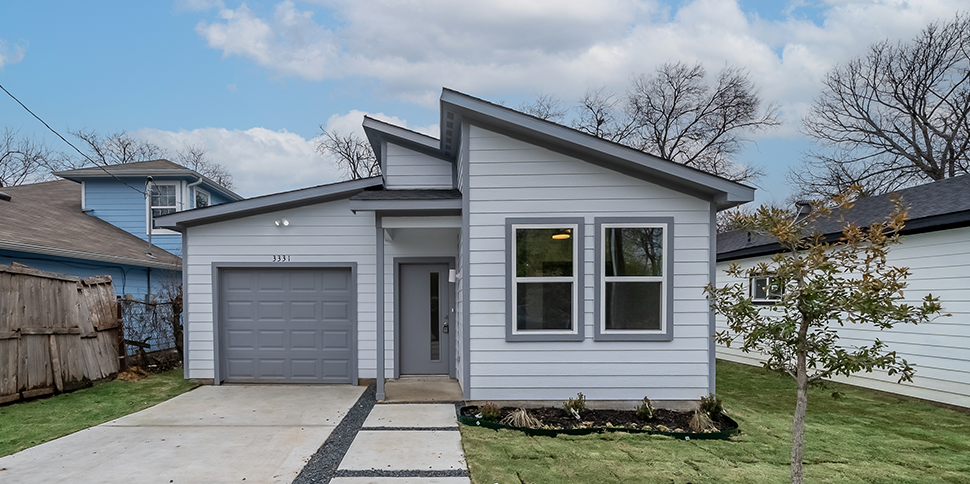
Honoring their roots and serving the community
A DFW real estate company that honors the school mascot where their friendship began, Titan has two arms: a development firm that focuses on building from the ground up and a construction company that specializes in renovating existing homes for various municipalities. To date, the Titan team has completed projects totaling more than $25 million.
“We realized that there was a much broader need outside of just the private side, and that pushed us to see how we could partner with municipalities to put more quality homes into what’s now known as ‘affordable housing.’”
In today’s lexicon, people talk about the need for affordability in the Dallas-Fort Worth market. Ellis and Shabazz have focused on that segment since they started working together. That’s where they saw the most need and opportunity for growth.
“When we revitalize existing homes for the city, we don’t just want to get things ‘good enough’—we have an opportunity to make a difference, creating living spaces that people can be proud of, places that are safe. A lot of our work serves the elderly community, so it’s important that we get things right,” said Shabazz.
Maintaining consistency and affordability in Dallas housing
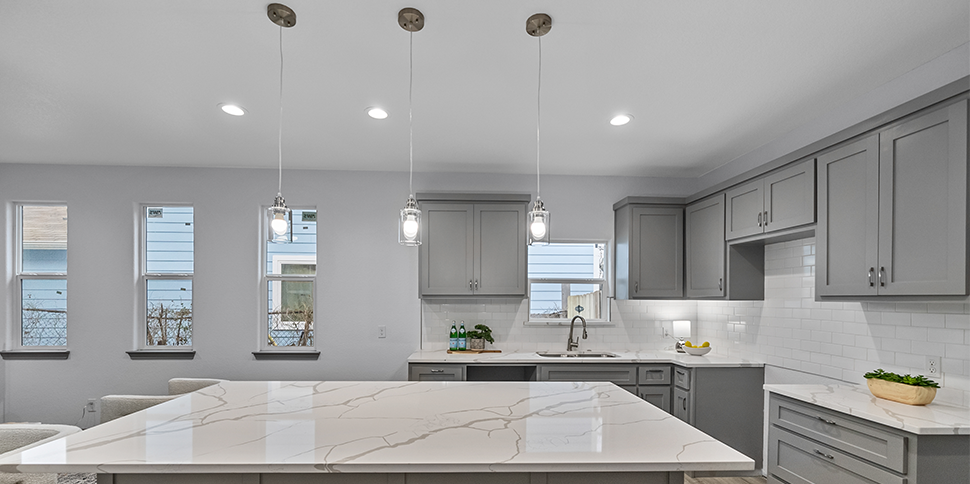 Shabazz and Ellis approach both remodels and new construction with an eye toward consistency. Rather than tearing something down and putting up a structure that looks nothing like the surrounding homes, their goal is to keep the integrity of the area. That means staying within the same style—two-story or ranch, carport or garage—keeping similar square footage, and using the same construction materials so the house can be affordable but not “othered.”
Shabazz and Ellis approach both remodels and new construction with an eye toward consistency. Rather than tearing something down and putting up a structure that looks nothing like the surrounding homes, their goal is to keep the integrity of the area. That means staying within the same style—two-story or ranch, carport or garage—keeping similar square footage, and using the same construction materials so the house can be affordable but not “othered.”
The partners are proud of the good work they’ve started and want to grow the company by taking on bigger projects that will increase the inventory faster.
“Getting larger parcels of land and developing affordable communities instead of individual structures in different parts of the city,” explains Shabazz. “Incomes are not going up at the same rate as the cost of living. Dallas is trying to address this problem, and we have the track record to help.”
They remind people that ‘affordable’ does not mean low income—it means the amount allocated for something isn’t disproportionate to the amount of money someone earns. For housing, the federal government puts that at 30 percent. Dallas—like cities across the country—is increasingly struggling with that.
Tackling Dallas’ affordable housing shortage
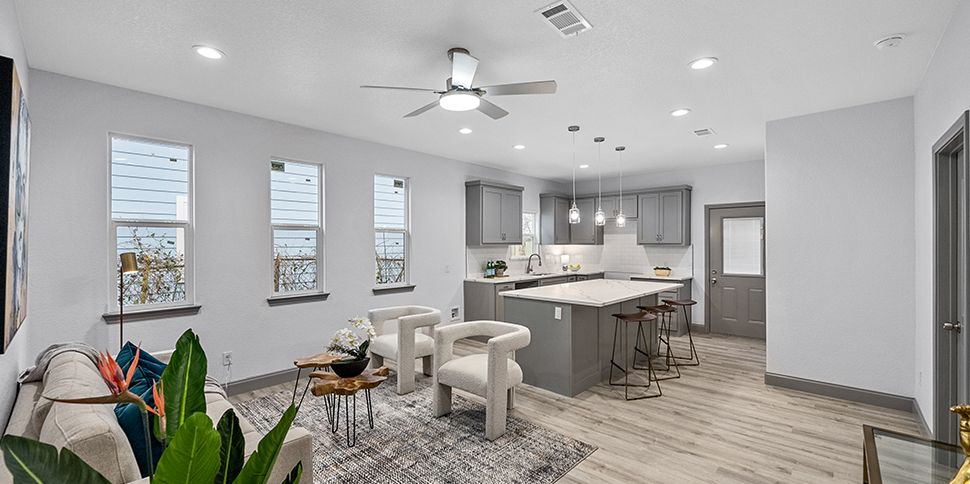 Affordability is determined by looking at area median income. For the city of Dallas, AMI is $44,500 for a family of four. A report from the Child Poverty Action Lab released in the spring of 2023 showed that the city needs more than 33,000 rental units just to accommodate the current number of households (family of four) that earn at or below AMI.
Affordability is determined by looking at area median income. For the city of Dallas, AMI is $44,500 for a family of four. A report from the Child Poverty Action Lab released in the spring of 2023 showed that the city needs more than 33,000 rental units just to accommodate the current number of households (family of four) that earn at or below AMI.
Ellis says that kind of data motivates Titan.
“Look at an area like Dolphin Heights. Titan’s homes are two blocks away from the Dallas Fire Department’s training facility. Being able to live and work in the same area—and own their own home—that was intentional. We want to do more of that.”
Titan and Associates also has its fingerprints in South Oak Cliff, South Dallas, and an area near Paul Quinn College.
“We’re grateful that we’re able to do well for ourselves and grow our efforts in the community at the same time. And a big part of that expansion is because of the CDR,” said Ellis.
The power of collaboration: Community Developers Roundtable
The CDR, or Community Developers Roundtable, is based on the same principles of teamwork and collaboration that Ellis and Shabazz first experienced on the football field.
“We all have individual projects, but we’re working as a team, sharing knowledge and experiences.”
The CDR provides access to experts and industry contacts that help Titan and Associates continue to be profitable while managing the costs to build—all while keeping homes at a reasonable price point. Their houses are typically priced under $240 thousand dollars, and similar structures could go for $100 thousand dollars higher just down the street, they say.
Connecting for community impact
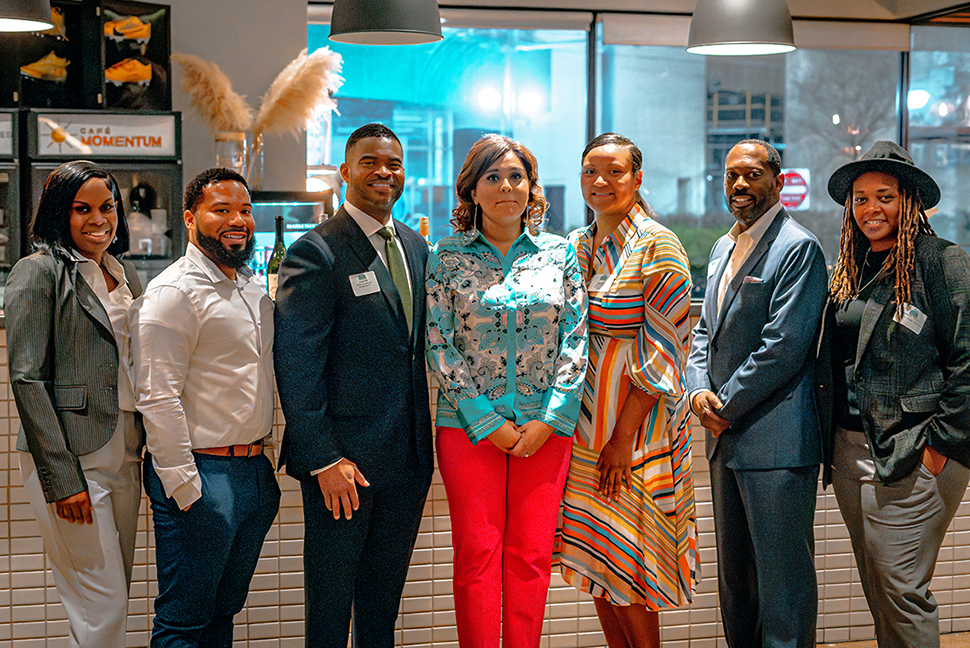
Titan and Associates’ Kwame Ellis (green tie) with Nicole Sternes; Brichard Humphrey; Kwame Ellis; Monica Balderas; Sametrius Ruben; Jay McIlveen; and Marguerite Felder at a CDR networking dinner at Cafe Momentum.
Connecting developers like Titan and Associates with each other and with experts in real estate and financing, as well as leaders in local government, isn’t the only way the CDR provides support during the eight-month program. Networking events where members from both cohorts can mix with corporate sponsors are another key to success.
At one recent dinner hosted at Cafe Momentum, Karen Riley, community development officer at PNC touted the CDR’s growing influence.
“The CDR provides an opportunity to connect with the next generation of affordable housing developers, understand their vision and needs, and collectively collaborate to provide resources to better the community,” Riley said, noting that the bank is a proud sponsor of the Innovan Neighborhoods Community Developers Roundtable networking dinner.
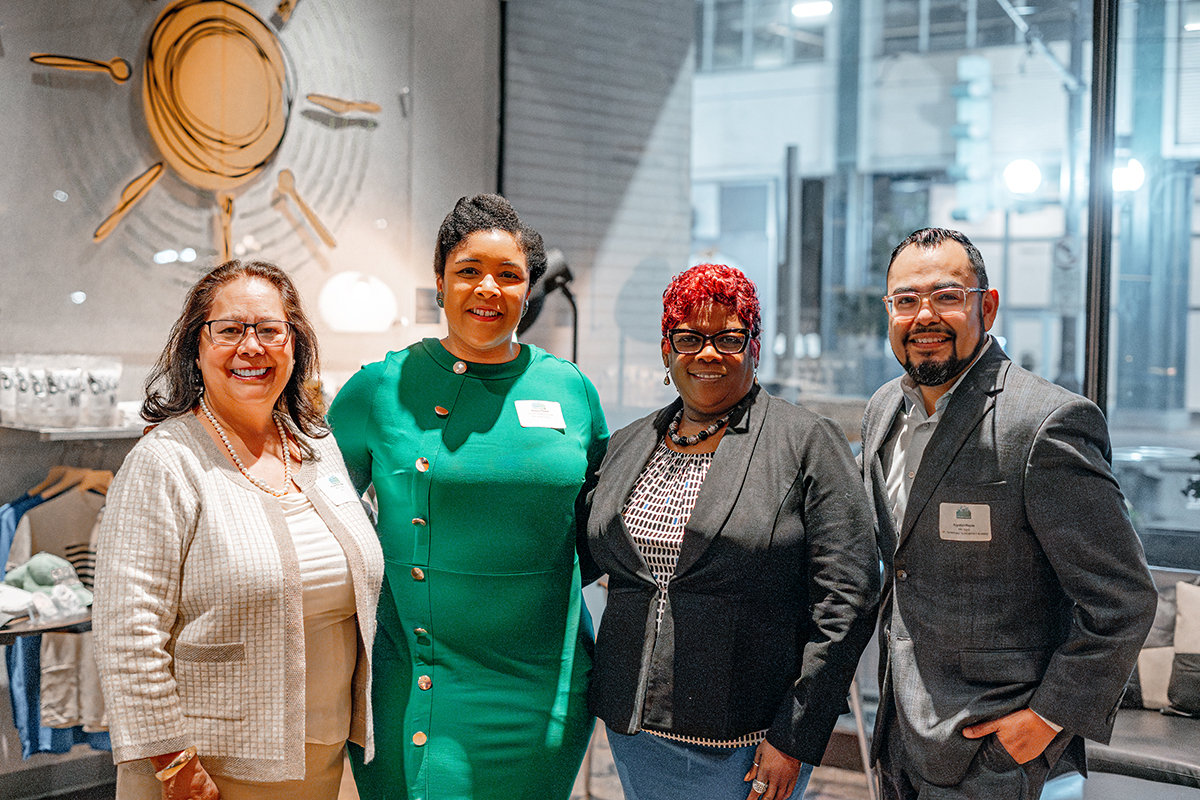
From left: Rosa Rios Valdez, president and CEO, BCL of Texas; Maggie Parker, Innovan Neighborhoods; Karen Riley, community development officer, PNC; and Krystian Reyes, vice president, relationship manager II, community development banking, PNC
Riley said the partnership with the CDR is a demonstration of PNC’s commitment made in its 2022 Community Benefits Plan, to support affordable housing.”
TITAN HOME GALLERY
Photos courtesy of Titan and Associates
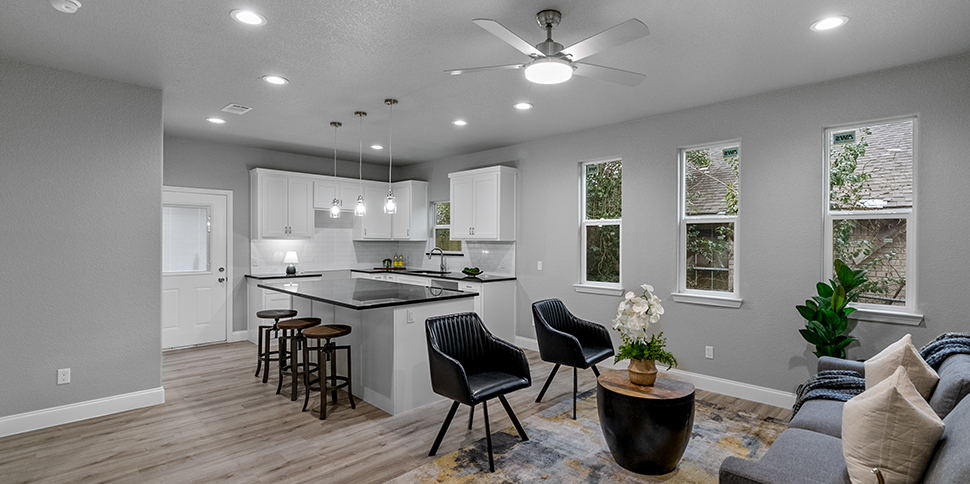
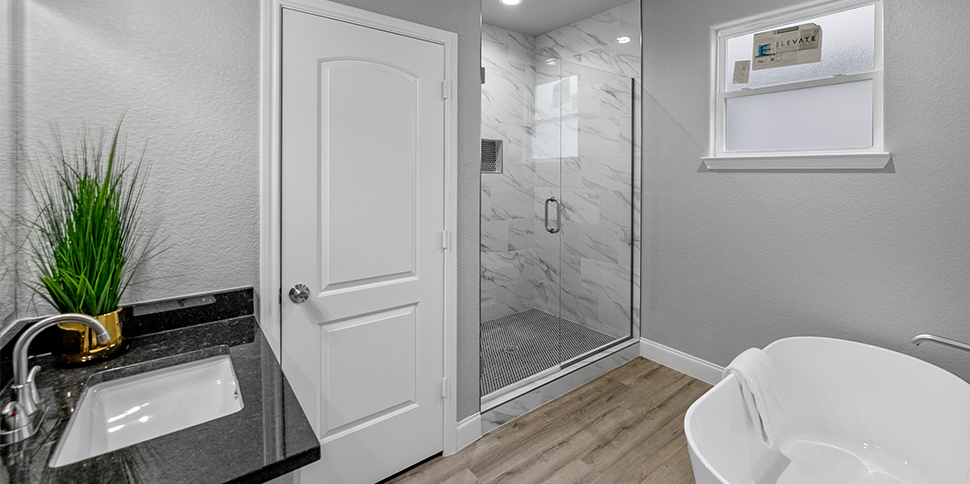
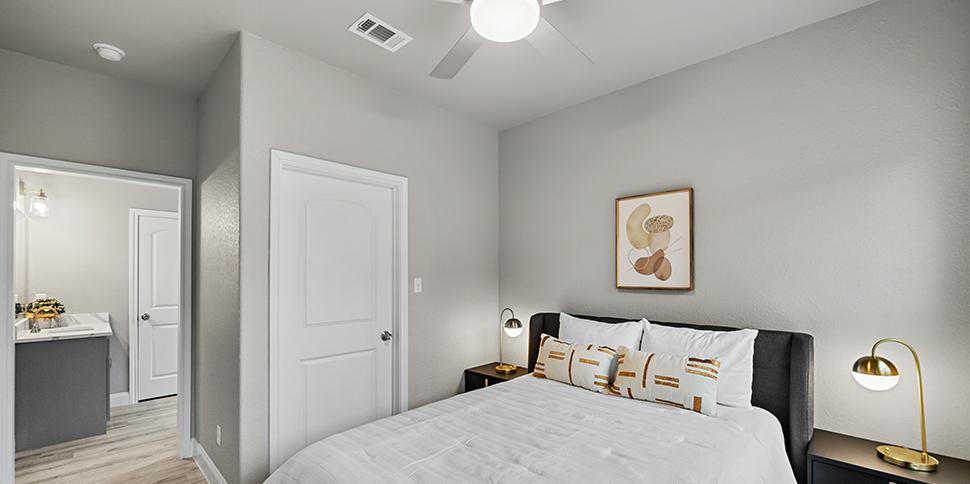
Read more in the New Dallas Landscape series
To read previous CDR profiles, click here.
Voices contributor Nicole Ward is a data journalist for the Dallas Regional Chamber.
![]()
Get on the list.
Dallas Innovates, every day.
Sign up to keep your eye on what’s new and next in Dallas-Fort Worth, every day.

